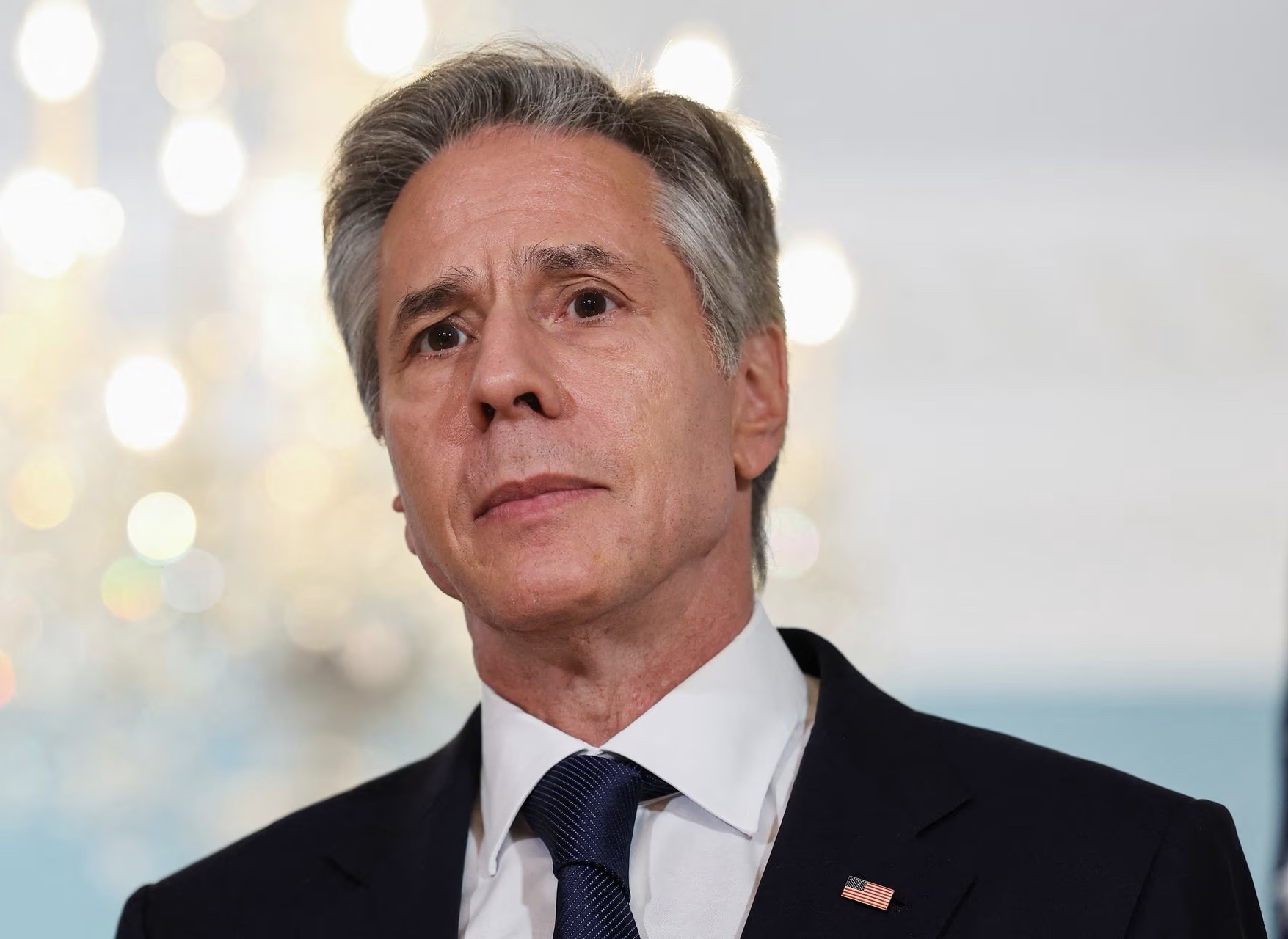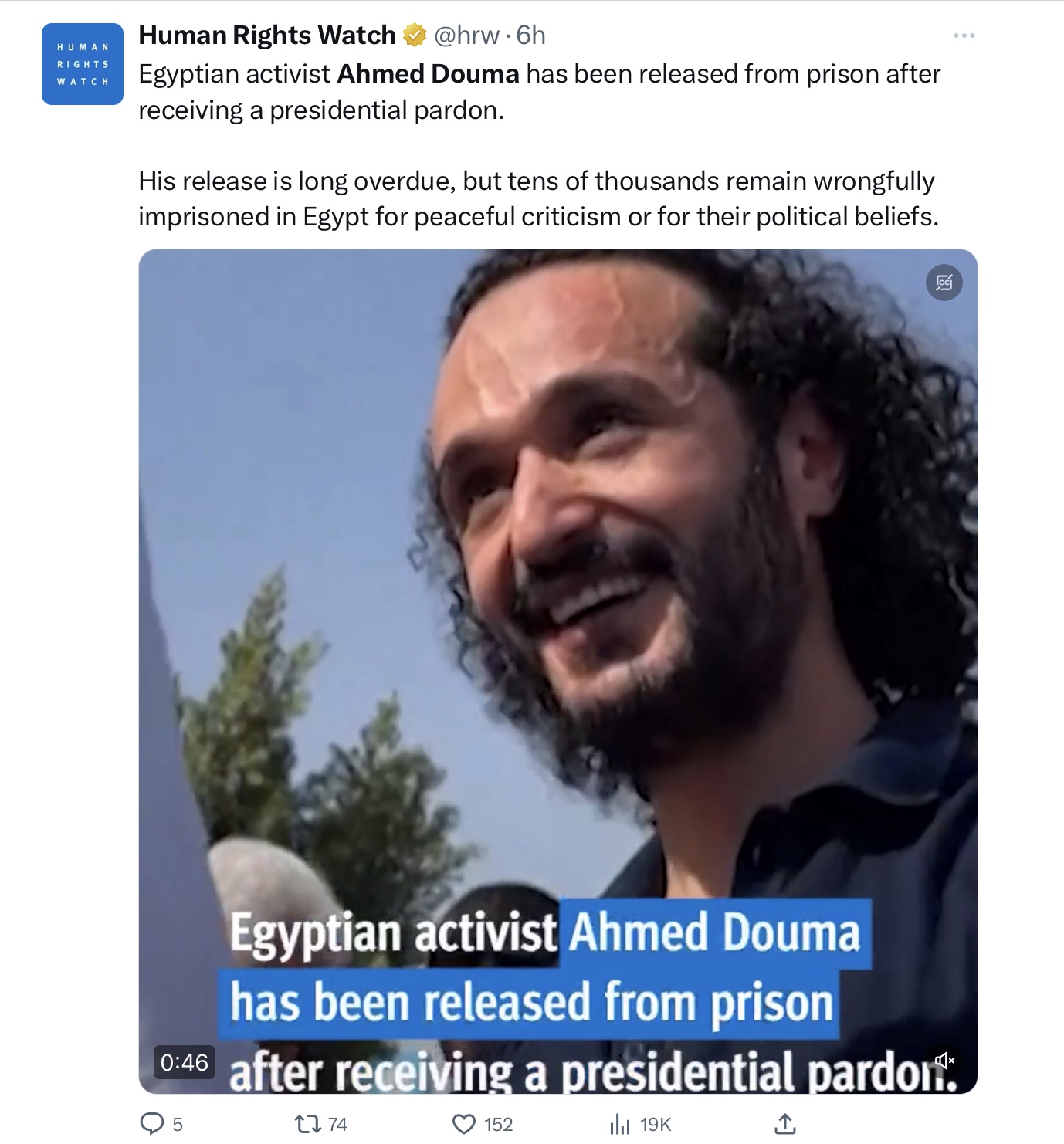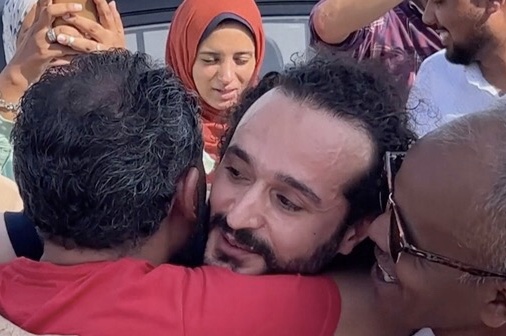This weekend saw the release in Egypt of 30 political prisoners on the instruction and by decree issued Saturday from the Egyptian President Abdul Fatah El-Sisi. The release was the result of an official pardon and allowed Ahmed Douma, one of the most prominent activists involved in the Arab Spring uprising in 2011, to walk free from jail after spending the last ten years in confinement.
We never lost hope
Videos published on social media on the weekend showed Douma outside the prison hugging friends and fellow activists who greeted him in celebration of his freedom.
His former wife, Nourhan Hefzy, wrote of how she had never lost hope that he would one day be released and said:
‘For 10 years he was in the same place, in the same ward, welcoming new inmates and bidding farewell to others … hoping he would get released one day and be with us. Today he deserves that we all take a break to fill our hearts with joy’
Douma, was arrested in 2013 along with three of his fellow activists for breaking newly introduced draconian laws severely restricted the right to peaceful protest, which had been hurriedly introduced by the military directly after the coup which overthrew the democratically elected government of Mohamed Morsi’s Freedom and Justice Party. He and hundreds of others fell victim to a raft of new emergency measures, which in Douma’s case imposed an initial 3-year imprisonment term, later extended in 2015 to 15 years. Amnesty International referred to the trial as politically motivated and without internationally recognised due process.
60,000 prisoners of conscience since Sisi took power
Ahmed Douma has spent 4 years and eight months of his detention in solitary confinement – locked in his cell for more than 22 hours a day in desperate prison conditions. He was subject to regular torture and ill-treatment and denied access to medical care according to Amnesty international. International political forums and human rights organisations have been lobbying for the release of ‘tens of thousands of prisoners of conscience’, arrested and detained for exercising their internationally respected rights to peaceful protest and assembly. Human rights groups estimate that as many as 60,000 political prisoners have been detained since Sisi took power in 2013. Just last year in November 2022, members of the European parliament proposed a motion condemning Egypt’s arbitrary detention of civil society activists. It said that the parliament:
‘Firmly condemns the continued arbitrary and pre-trial detention of tens of thousands of prisoners of conscience in Egypt, many of whom are detained in inhuman conditions without access to a fair trial or basic rights, as evidenced in Egypt’s political prisons at Wadi Natroun and Badr; notes that a limited fraction of Egypt’s political prisoners were released or pardoned by the Presidential Pardon Committee in April 2022, with the release of between 800 and 1 000 prisoners from arbitrary pre-trial detention; highlights that at least 1 953 Egyptians have been arbitrarily arrested and detained since then, according to Egyptian NGOs and Amnesty International’
US regards release as indication of progress on Egyptian human rights
US Secretary of State, Anthony Blinken spoke to the Egyptian Foreign Minister, Sameh Shoukry, on Monday and welcomed the release of Douma and the other prisoners, indicating that the pardon was a welcome move towards progress on human rights which would strengthen Egypt -US partnership going forward.

Pardon comes as 10 year anniversary of the killing of thousands of unarmed protesters is remembered
The Egyptian President’s pardon this weekend, came at the end of a week of remembrance, ten years after the notorious massacre at Rabaa Square, which was instigated by troops under the command of General Abdel Fattah el-Sisi. Two camps had held peaceful sit-in protests over a six week period, with as many as 85,000 pro-democracy protesters rallying against the overthrow of Mohamed Morsi’s democratically elected government – one at Nahda Square and the other at Rabaa al-Adawiya Square. Protesters suddenly found themselves surrounded by troops and they were then forcefully dispersed, resulting in the deaths of more than 1000 unarmed citizens. Reports at the time indicated that snipers had been positioned on the roofs of surrounding buildings and that they had been given orders to shoot at will as protesters attempted to exit the camps.
Phillip Luther, Amnesty International’s Research and Advocacy Director for the Middle East & North Africa, commenting on the anniversary, expressed his outrage that there had been no attempt on behalf of the international community to pursue accountability for what he described as mass murder at the hands of the military. He said:
Ten years since the Rabaa Massacre – a ‘Decade of shame’
‘The last 10 years can only be described as a ‘decade of shame’. The Rabaa massacre was a turning point following which the Egyptian authorities have relentlessly pursued a zero-tolerance policy of dissent… The lack of a robust and coordinated response by the international community to the Rabaa massacre has allowed Egyptian military and security forces to get away with mass murder quite literally. There is no hope of Egypt emerging from its ongoing human crisis without accountability for the actions of the Egyptian authorities on that darkest of days in Egypt’s modern history. States with influence on Egypt must echo the demands of survivors, victims’ families and human rights defenders for truth, justice and reparation’
Human Rights Watch published a damning report describing the killings as ‘a crime against humanity’ and ‘one of the world’s largest killings of demonstrators in a single day in recent history’. Although official figures suggest that circa 1000 people were killed at the time, supporters of the Morsi government and the Muslim Brotherhood claim that as many as 2,600 were killed, with up to 5,000 injured.
https://x.com/hrw/status/1694355768022098382?s=61&t=5ZpKzLG25fYWjVGrkZp97g

At the beginning of August, the massacre at Rabaa and Nahda Squares was remembered in a film screened at the British Academy of Film and Television Arts. The film entitled ‘Memories of a Massacre’ was produced by film and documentary maker, Nicky Bolster and received a warm and emotional reception from the sizeable audience, although it was interrupted by a handful of pro-Sisi supporters who had to be evicted from the building.


















